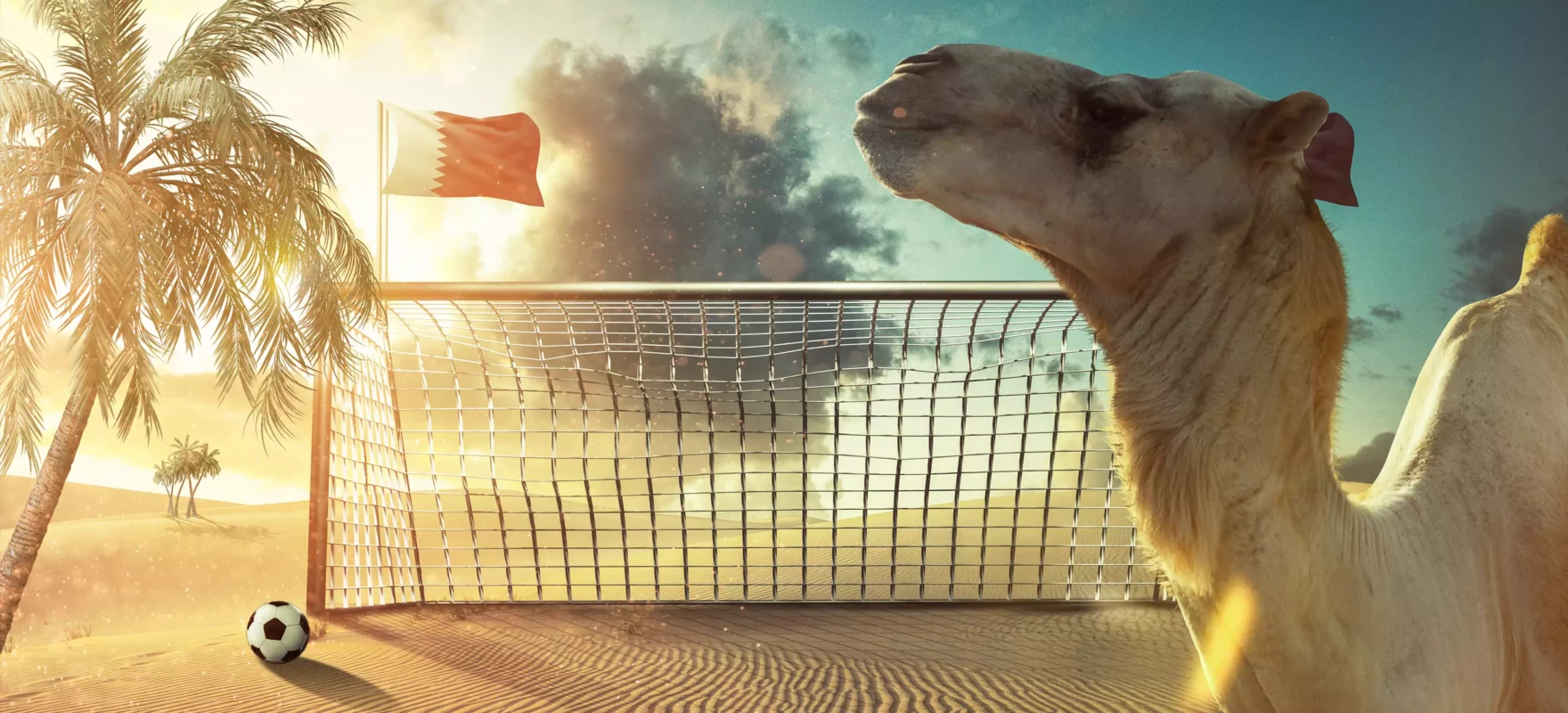Nico Bryan, November 20, 2022
Across the world, Christmas is a time when people and families come together and celebrate, and songs like Winter Wonderland flood through homes and shops. But this year things are a bit different. Because for first time in history we face a winter World Cup, in a land that leaves everyone wondering: how could this possibly be going ahead?
It’s no secret that Qatar 2022 has been embroiled in controversy: corruption, conspiracy and bribery have tarnished the beautiful game’s most brilliant tournament. And who can overlook Qatar’s questionable political regime; A World Cup host who pledged to ‘expand the game’ but excludes LGBQT+ citizens, and fails to give migrant workers access to basic human rights. So, aside from the rain-filled beer gardens, Lil Baby’s watery World Cup ‘Anthem,’ and Gareth Southgate’s tepid tactics, forgive me for not being too fussed about signing up for a World Cup Fantasy League.
These controversies aren’t new, either. As noticed by many commentaries, Qatar 2022 isn’t too far removed from Italy in 1934, nor Argentina 1978. In 1934, Mussolini was overtly promoting fascism, and in Argentina, FIFA found a way to justify a world cup in a country run by an undemocratic Junta. Politics, it seems, is peripheral.
“And yet, as much as FIFA have asked that we ‘focus on the football’ in the coming weeks, the politics is central, for people and for brands.”
And yet, as much as FIFA have asked that we ‘focus on the football’ in the coming weeks, the politics is central, for people and for brands. So how are brands reacting, and what are the tactics being undertaken to morally market this World Cup?
Well, on the surface, it certainly seems like business as usual. FIFA predicts that over 5 billion people will watch the tournament, and global sponsorship deals are expected to generate FIFA $1.1bn in revenue. So, as demonstrated by VISA – who dropped the partnership with FIFA following the corruption scandal in 2014 but are expected to make £27m from that same renewed partnership in Qatar – the rewards seem to outweigh the risks. And for those brands who are official partners of the World Cup, they’ve defended allegations of sports washing, claiming instead that they are better placed to leave a ‘positive legacy.’ Whether they do is a different matter.
Other brands have taken to pure virtue signalling PR pushes, like BrewDog. Many of you will have seen their announcement to become the self-professed ‘Anti-World f*CUP’ sponsor, and sell limited edition lagers where the proceeds go to human rights charities. In principle, this is a brilliant idea. The only issues being that they’re still showing the football in their pubs, they’re also still selling their beers in Qatar, and they’ve had their own internal bullying scandal in the last 12 months. And all of this is conveniently timed two weeks before the tournament starts, rather than 12 years ago when the hosts were announced. Nonetheless, BrewDog are ‘pleased to have struck a nerve and successfully raised huge awareness of the continued human rights abuses in Qatar,’ and have politely asked that we look towards the *other* hypocritical brands if we’re going to criticise. Good for them, I guess.
Nike, a brand who so famously tend to blend the political and the promotional, have taken a very different approach. Their advert celebrates some of the World Cup’s greatest players past and present, in a panna cage with where geography, gender and time aren’t barriers. They realise that, at its best, the World Cup is a timeless geographical and cultural melting pot that oozes with excitement. They don’t explicitly mention Qatar, nor it’s politics. They do, however, finalise the advert by looking to the future, which may just be a subtle shot at a country that many consider to be a backward-looking, archaic regime. To paraphrase Steven Gerrard, they let the feet do the talking. But is that any better?
“I think this comes back to a bigger question: can – or should – brands separate morality from marketing?”
Irrespective of marketing tactics, I think this comes back to a bigger question: can – or should – brands separate morality from marketing? In a recent interview, France Manager Didier Deschamps asserted: ‘participating is not condoning.’ But for brands like BrewDog – who are profiting from the World Cup – I’m not so sure. But equally, who am I to comment? Can I preach humanism during a World Cup whose hosts embody inhumanity, and still pray that my team comes home victorious? Because rest assured, I will be watching the football this month. And with Nike too, maybe I enjoy their advert because it helps me disassociate with the politics? I don’t know. One thing is sure, anyway: England will bottle it. Let’s hope 2026 doesn’t provoke such moral questions.
